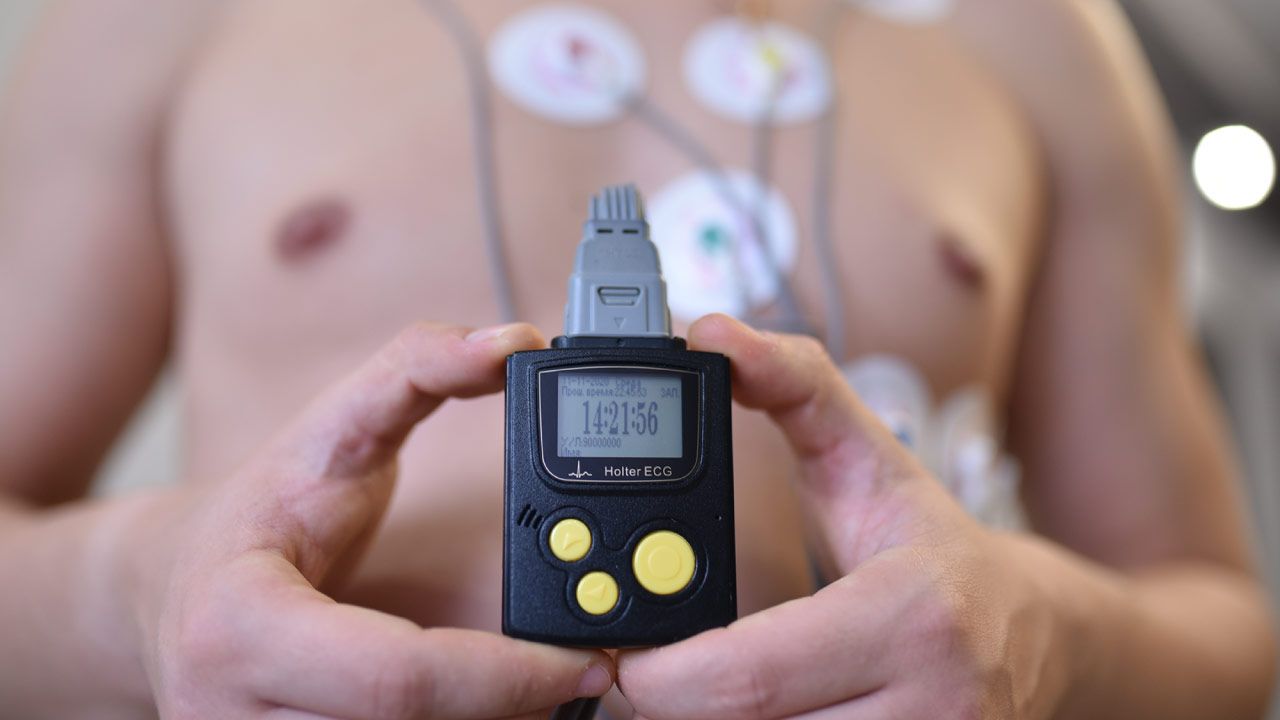
A Holter monitor is a small, portable device that is used to record the heart's rhythm. It is a wearable device. It determines the risk of developing arrhythmias. It is usually advised for persons having the symptoms of irregular heartbeat, fainting, and underlying heart conditions.
Generally, this monitor has to be worn for about 12 to 48 hours during our daily routine. If ECG does not show accurate results then a Holter monitor is used. Some electron patches are placed on the chest and these electrodes are connected by wires to the small portable recording device.
This monitor records the rate and rhythm of the heart. It is also called ambulatory electrocardiography. It not only records the rate and rhythm but also looks for other abnormalities which affect the heart function. The recordings by the monitor help the physician to determine the electrical impulses, blood supply, and oxygen supply to the heart. Wearing the Holter monitor does not involve any risk.
It is a painless, non-invasive procedure and produces accurate results. This is usually recommended by a cardiologist. This is one of the best ways to identify the efficiency of your heart.